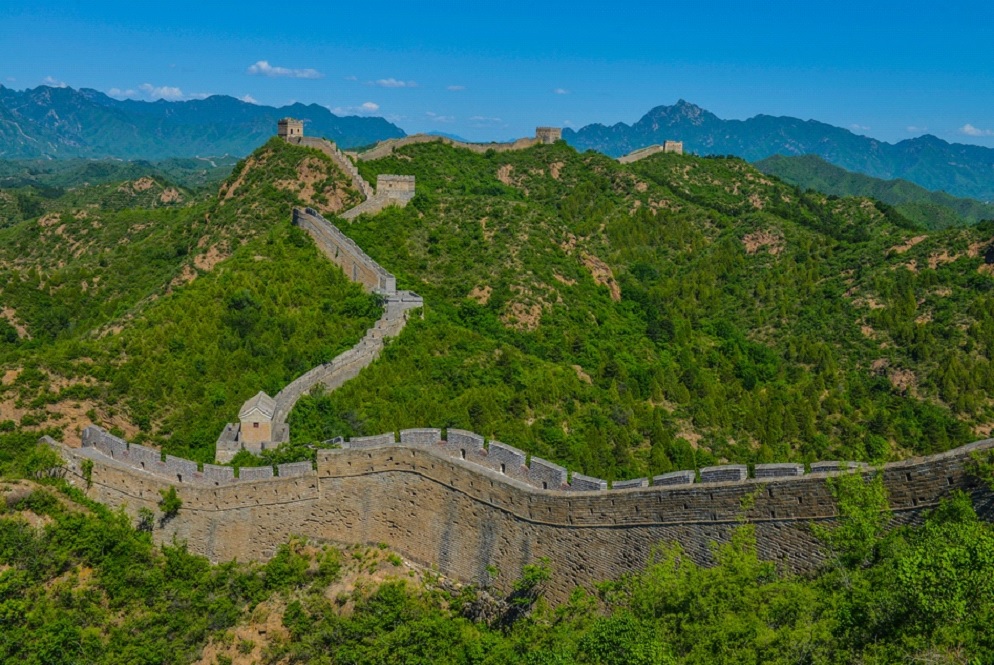To protect the Earth is a common responsibility of mankind. The global spread of COVID-19, which has severely impacted the world economy, is another reminder for us to contemplate our relations with Nature, calling on the world to promote green, inclusive and sustainable development.
“Humankind should launch a green revolution and move faster to create a green way of development and life, preserve the environment and make Mother Earth a better place for all.” Chinese President Xi Jinping’s remarks at the General Debate of the 75th Session of the United Nations (UN) General Assembly has set a new benchmark for global ecological civilization.
Humankind can no longer afford to ignore the repeated warnings of Nature and go down the beaten path of extracting resources without investing in conservation, pursuing development at the expense of protection, and exploiting resources without restoration.
According to a global biodiversity report recently issued by the UN, the world has not yet achieved its goals of nature conservation set a decade ago, and the deteriorating environment is increasing the risk of disease transmission from animals to mankind.
Petteri Taalas, Secretary-general of the World Meteorological Organization pointed out that greenhouse gas concentrations – which are already at their highest levels in 3 million years – have continued rising, and now 2016–2020 is set to be the warmest five-year period on record. Whilst many aspects of people’s lives have been disrupted in 2020 by COVID-19, climate change has continued unabated, he added. UN Secretary-General António Guterres stressed to turn the recovery from the pandemic into a real opportunity to build a better future.
A civilization may thrive if its natural surroundings thrive. China, with a sense of responsibility for human civilization, advocates for respecting, accommodating to and protecting nature, so as to find harmony between human beings and Nature, coordinate economic development and ecological conservation, and build a prosperous, clean and beautiful world. It is believed by the international society to be a remedy that addresses both the symptoms and root causes for global challenges such as global warming and deteriorating ecology.
China also holds that the world needs to increase the drive for building a beautiful world, build synergy for global governance on the environment, increase the potential for high-quality economic recovery after COVID-19, and strengthen the power of action to tackle challenges to the environment.The world believes that China’s proposals shall be taken as the goals, paths and principles for the construction of global ecological civilization.
China calls on all countries to pursue innovative, coordinated, green and open development for all, seize the historic opportunities presented by the new round of scientific and technological revolution and industrial transformation, achieve a green recovery of the world economy in the post-COVID era and thus create a powerful force driving sustainable development.Such important guidance demonstrates China’s sense of responsibility to foster green development and build a community with a shared future for mankind.
Natural environment shall be protected in the same way people would protect their own eyes, and green ways of working and living shall be encouraged. This is a resolute decision of China, which bears the country’s sincere aspiration for a harmonious world.
To encourage green ways of working and living is a profound revolution for the view of development. “Lucid waters and lush mountains are invaluable assets” – a vision that views protection and development in a dialectical manner, has been broadly supported in China and is effectively guiding the country’s practices.
China is making efforts to coordinate the systematic governance of mountains, forests, farmland, rivers, lakes and grasslands, improve the development of its geographical space, protect its blue skies, and defend its rivers and soil from pollution. As a result, barren mountains have turned green; deserts have turned into forests, and abandoned mines have become wetlands.
China is lauded by the international society as an important participator of , contributor to and leader of the construction of global ecological civilization. John B. Cobb Jr.,member of the American Academy of Arts and Sciences, noted that China’s ecological construction reveals that what the country cares about is not only the well-being of its people, but also the sustainable development of mankind. He said the hope of ecological civilization lies in China.
As the largest developing country, China is prepared to take on international responsibilities commensurate with its level of development, and doits part to global environmental governance. Completing the targets set for 2020 for tackling climate change two years in advance, China has declared to scale up its nationally determined contributions. It will adopt even more forceful policies and measures and strive to peak carbon dioxide emissions before 2030 and achieve carbon neutrality before 2060.
China’s solemn promises showcase the country’s firm determination to promote its new development philosophy, and demonstrate its clear attitude to make new contributions to the global response to climate change. Former Treasury Secretary of the United States Henry Paulson noted China’s actions will exert revolutionary impacts on global climate governance. Deputy Secretary-General Kung Phoak of the Association of Southeast Asian Nations also said China has set an example for other countries.
There is only one Earth in the universe and we mankind have only one homeland. Human beings and Nature belong to a community with a shared future. Facing global environmental challenges, all countries shall work in solidarity and coordination and take concrete actions to safeguard the planet, and contribute their power to building a prosperous, clean and beautiful world.












